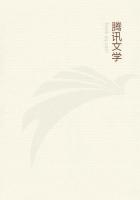walking, it is assumed for all purposes of responsibility that he knows the earth is under his feet.The conduct per se is indifferent, to be sure.A man may go through the motions of walking without legal peril, if he chooses to practise on a private treadmill; but if he goes through the same motions on the surface of the earth, it cannot be doubted that he knows that the earth is there.With that knowledge, he acts at his peril in certain respects.If he crosses his neighbor's boundary, he is a trespasser.The reasons for this strict rule have been partially discussed in the last Lecture.Possibly there is more of history or of past or present notions of policy its explanation than is there suggested, and at any rate I do not care to justify the rule.But it is intelligible.A man who walks knows that he is moving over the surface of the earth, he knows that he is surrounded by private estates which he has no right to enter, and he knows that his motion, unless properly guided, will carry him into those estates.He is thus warned, and the burden of his conduct is thrown upon himself.
But the act of walking does not throw the peril of all possible consequences upon him.He may run a man down in the street, but he is not liable for that unless he does it negligently.Confused as the law is with cross-lights of tradition, and hard as we may find it to arrive at perfectly satisfactory general theory, it does distinguish in a pretty sensible way, according to the nature and degree of the different perils incident to a given situation.
>From the ****** case of walking we may proceed to the more complex cases of dealings with tangible objects of property.It may be said that, generally speaking, a man meddles with such things at his own risk.It does not matter how honestly he may believe that they belong to himself, or are free to the public, or that he has a license from the owner, or that the case is one in which the law has limited the rights of ownership; he takes the chance of how the fact may turn out, and if the fact is otherwise than as he supposes, he must answer for his conduct.As has been already suggested, he knows that he is exercising more or less dominion over property, or that he is injuring it; he must make good his right if it is challenged.
Whether this strict rule is based on the common grounds of liability, or upon some special consideration of past or present policy, policy has set some limits to it, as was mentioned in the foregoing Lecture.
Another case of conduct which is at the risk of the party without further knowledge than it necessarily imports, is the keeping of a tiger or bear, or other animal of a species commonly known to be ferocious.If such an animal escapes and does damage, the owner is liable simply on proof that he kept it.In this instance the comparative remoteness of the moment of choice in the line of causation from the effect complained of, will be particularly noticed.Ordinary cases of liability arise out of a choice which was the proximate cause of the harm upon which the action is founded.But here there is usually no question of negligence in guarding the beast.It is enough in most, if not in all cases, that the owner has chosen to keep it.Experience has shown that tigers and bears are alert to find means of escape, and that, if they escape, they are very certain to do harm of a serious nature.The possibility of a great danger has the same effect as the probability of a less one, and the law throws the risk of the venture on the person who introduces the peril into the community.
This remoteness of the opportunity of choice goes far to show that this risk is thrown upon the owner for other reasons than the ordinary one of imprudent conduct.It has been suggested that the liability stood upon remote inadvertence. But the law does not forbid a man to keep a menagerie, or deem it in any way blameworthy.It has applied nearly as strict a rule to dealings which are even more clearly beneficial to the community than a show of wild beasts.
This seems to be one of those cases where the ground of liability is to be sought in policy coupled with tradition, rather than in any form of blameworthiness, or the existence of such a chance to avoid doing the harm as a man is usually allowed.But the fact that remote inadvertence has been suggested for an explanation illustrates what has been said about the difficulty of deciding whether a given rule is founded on special grounds, or has been worked out within the sphere of negligence, when once a special rule has been laid down.
It is further to be noticed that there is no question of the defendant's knowledge of the nature of tigers, although without that knowledge he cannot be said to have intelligently chosen to subject the community to danger.Here again even in the domain of knowledge the law applies its principle of averages.The fact that tigers and bears are ::dangerous is so generally known, that a man who keeps them is presumed to know their peculiarities.In other words, he does actually know that he has an animal with certain teeth, claws, and so forth, and he must find out the rest of what an average member of the community would know, at his peril.
What is true as to damages in general done by ferocious wild beasts is true as to a particular class of damages done by domestic cattle, namely, trespasses upon another's land.This has been dealt with in former Lectures, and it is therefore needless to do more than to recall it here, and to call attention to the distinction based on experience and policy between damage which is and that which is not of a kind to be expected.Cattle generally stray and damage cultivated land when they get upon it.
They only exceptionally hurt human beings.














